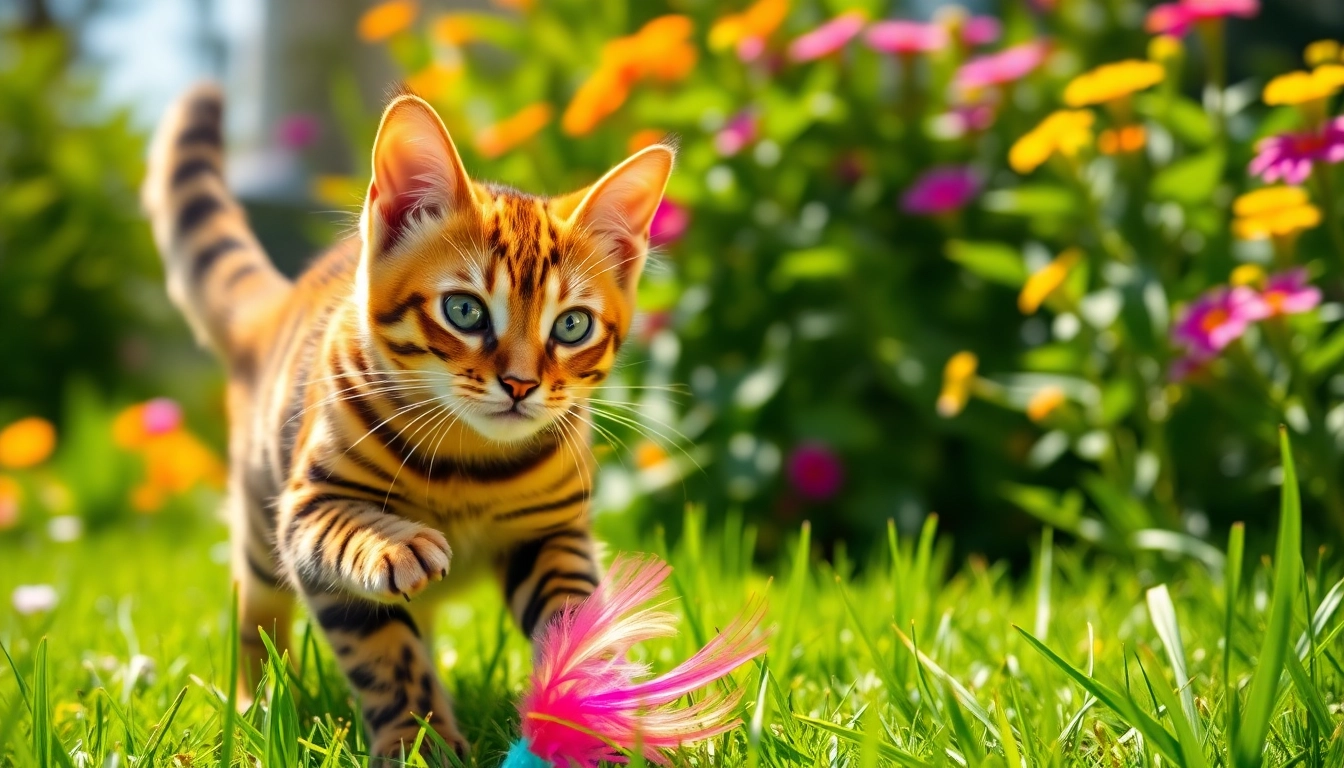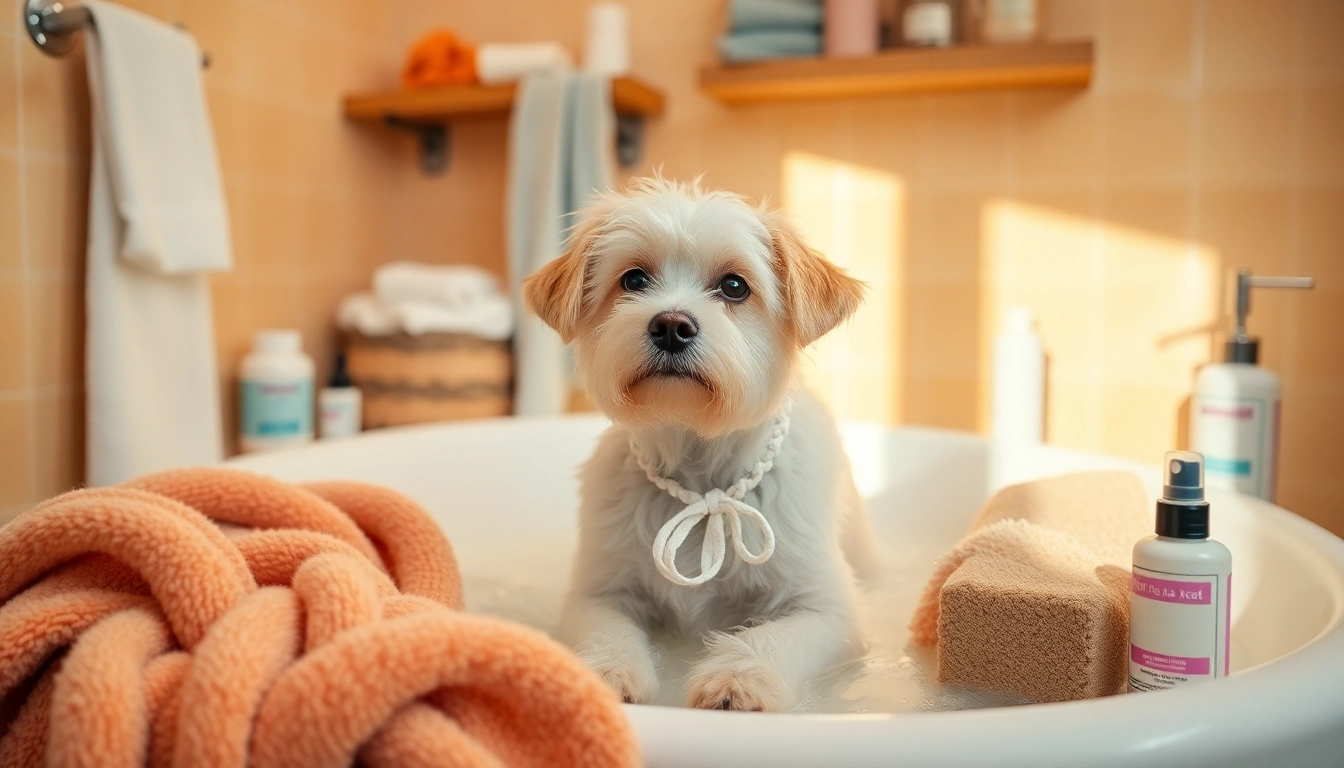Understanding the Bengal Breed
The Bengal cat is a striking and inquisitive breed that stands out for its unique leopard-like appearance and playful personality. Known for its distinctive coat, which showcases an array of beautiful colors and rosettes, the Bengal offers not just aesthetic appeal but also a rich history and lively temperament that many cat lovers seek. Those considering purchasing a Bengal kitten in Orange County will benefit greatly from understanding the breed’s characteristics, health considerations, and socialization needs. If you are looking for reputable resources about Bengal breeders, you will find valuable information at Bengal Breeders Orange County where you can learn more about the options available to you.
1. Characteristics of Bengals
Bengal cats are known for their unique physical qualities that resemble small wildcats, particularly the Asian leopard cat. They are typically medium to large in size, boasting a strong and athletic build. Their fur is short but densely packed, featuring a soft, silky texture. A variety of patterns can be found in Bengal cats, including spots, rosettes, and marbled patterns, allowing for diverse color combinations that range from gold to silver, and even charcoal.
In addition to their striking appearance, Bengals display an engaging personality. They are often described as energetic, playful, and curious. Their high intelligence allows them to learn tricks and solve puzzles, which makes playtime interactive and interesting. Bengals are also known for their vocalizations; they have a unique voice that can vary from chirps to deep purrs, serving as a way to communicate with their owners.
2. Health Considerations
When considering a Bengal cat, potential owners should be aware of various health issues that can affect the breed. Bengals are generally healthy cats, but they can be prone to certain genetic conditions. One of the significant concerns is Hypertrophic Cardiomyopathy (HCM), a condition that affects the heart muscle and can lead to heart failure. Responsible breeders will conduct health screenings on their breeding cats to minimize the risk of passing genetic conditions to their kittens.
Aside from HCM, Bengals may experience issues related to their diet and lifestyle. Optimal nutrition is crucial to their health, and obesity can be a concern due to their robust build and activity levels. Regular vet checkups, a balanced diet tailored to their needs, and an active lifestyle can greatly enhance a Bengal’s lifespan, which typically ranges from 12 to 16 years.
3. Socialization and Temperament
Sociability is one of the defining traits of Bengal cats. They thrive on human interaction and tend to form strong bonds with their families. Early socialization is essential; exposing kittens to various people, pets, and environments during their formative weeks can facilitate their development into well-adjusted adults. Bengals are often playful and retain their kitten-like energy well into adulthood, making them suitable for families with children and other pets.
However, due to their high energy and intellect, Bengals require mental and physical stimulation. Enrichment activities, such as climbing trees or puzzle feeders, can help keep them engaged and prevent any destructive behaviors that might develop from boredom.
Choosing the Right Bengal Breeder in Orange County
Finding the right Bengal breeder is pivotal in ensuring you bring home a healthy and well-socialized kitten. Various breeders in Orange County uphold different standards and practices, making it critical to identify the features that distinguish responsible breeders from the rest.
1. Key Qualities to Look For
The first aspect to consider when searching for a Bengal breeder is the reputation of the cattery. Look for breeders who have positive reviews and testimonials from previous clients. A credible breeder should be transparent about their breeding practices and willing to provide information about their cats’ backgrounds. Additionally, your chosen breeder should prioritize the health and temperament of their cats above all else, conducting necessary health screenings and maintaining strong lines of socialization.
Another critical quality is the breeder’s willingness to provide support and guidance. This should extend beyond the purchase of the kitten; they should offer advice on care, nutrition, training, and behavioral issues as they arise.
2. The Importance of TICA Registration
When evaluating potential breeders, check if they are registered with The International Cat Association (TICA) or another reputable feline registry. TICA oversees registered breeders, ensuring they adhere to ethical breeding standards. Registered breeders are held accountable to certain codes governing the health, welfare, and genetic quality of the cats they produce.
A registered breeder would typically offer cats that have been health-tested and care for the Bengal lineage responsibly, which can give potential owners peace of mind regarding their new kitten’s overall health and stability.
3. Questions to Ask Potential Breeders
Before finalizing a purchase with any breeder, ensure you ask essential questions that will clarify their practices and the quality of their kittens. Key inquiries may include:
- How do you socialize your kittens?
- What health screenings do you conduct on your breeding cats?
- Can I see the kitten’s parents and their living environment?
- How do you handle any health issues that may arise?
- What is your return policy if the kitten doesn’t fit into our home?
These questions not only provide insights into the breeder’s practices but also convey your commitment to responsible pet ownership.
Responsible Breeding Practices
Responsible breeding is crucial to the overall health and welfare of Bengal cats. This encompasses a commitment to ethical practices that prioritize the breed’s integrity and well-being above profit.
1. Ethical Breeding Standards
Ethical breeders adhere to standards that minimize health issues and promote good temperament in Bengal cats. This involves rigorous health testing and genetic screenings to ensure that cats bred are free from genetic disorders. Ethical breeders also avoid inbreeding practices that can lead to serious health complications in the kittens.
Furthermore, ethical breeders educate potential buyers about the breed and its specific needs. They take the time to understand each kitten’s future home environment, ensuring a good fit and responsible ownership.
2. Ensuring Health and Well-being
Health checks are a cornerstone of responsible breeding. Breeders should conduct thorough health screenings for conditions such as HCM, kidney disease, and other breed-specific issues. They should also provide a health guarantee and ensure that all vaccinations and deworming treatments are up to date. Beyond regular veterinary care, breeders should maintain clean, stimulating environments for their cats, allowing for exercise and social interaction.
3. Socialization Techniques Used by Breeders
Effective socialization techniques set responsible breeders apart. These could include early exposure to various environments, people, and sounds, which helps ensure that the kittens are well-adjusted. Breeders may play with kittens frequently, introducing toys and interactive activities that stimulate their curiosity.
Many ethical breeders also encourage prospective owners to visit and interact with the kittens during the selection process. This method allows kittens to become accustomed to new experiences, laying a foundation for a well-socialized pet.
Preparing for Your New Bengal Kitten
Once you’ve chosen the right breeder and your new Bengal kitten is ready to come home, preparing your household is the next crucial step. Setting the right environment and supplies will ensure a smooth transition for both you and your new furry friend.
1. Essential Supplies
Before your kitten arrives, make a checklist of essential supplies needed to create a comfortable living space. At a minimum, gather:
- A litter box and high-quality litter
- Food and water dishes
- Nutritionally balanced kitten food
- Scratching posts and interactive toys
- A cozy bed and a safe hiding space
- Cat carrier for vet visits
This essential kit will support your kitten’s basic needs, comfort, and well-being as they adjust to their new home.
2. Creating a Comfortable Home Environment
Establishing a safe and comfortable environment is vital. Ensure you have a designated space where your kitten can explore safely. Minimize potential hazards such as toxic plants, electrical cords, or small objects that can be swallowed. Additionally, plan to kitten-proof your home by securing cabinets and ensuring that any household items that could pose a risk are out of reach.
It’s also beneficial to create a warm and welcoming environment. Start by providing a secure place for them to retreat to, which can help them feel safe and adjust to their new surroundings. Your kitten may need time to acclimate, so offering space and control over their environment is important.
3. First Steps After Bringing Your Kitten Home
The first few days following your kitten’s arrival are crucial for bonding and transitioning. Allow your kitten to explore freely while keeping their essential areas (litter box, food, and water) accessible. Patience is key; they may initially hide or seem shy as they adjust. Spend time near them, offering gentle encouragement and affection without overwhelming them.
Establishing a routine will help your Bengal adjust faster. Provide consistent feeding times, play schedules, and daily interactions to foster a sense of security. Additionally, regular vet visits should be scheduled to keep track of vaccinations and overall health.
Adopting vs. Buying a Bengal Cat
The decision to adopt or buy a Bengal cat is an important one that can significantly impact your experience as a pet owner. Both options have distinct advantages and challenges worth considering.
1. Understanding Adoption Options
Adopting a Bengal cat from a rescue or shelter can be a wonderful way to provide a loving home to a cat in need. Many organizations specialize in Bengal rescues, and adopting can be more affordable than purchasing from breeders. However, it’s essential to understand that adopted cats, especially older ones, may come with an unknown history, which could include past trauma or behavioral issues.
As adoption often involves adult cats, prospective owners should be prepared for potential adjustments that may involve more patience and training. However, this route also offers the chance to provide a second chance to a deserving animal.
2. Benefits of Buying from Breeders
Buying from a reputable breeder allows you greater insight into your kitten’s early life and genetics. Most breeders are committed to upholding breed standards and health testing, which ensures that you bring home a healthy kitten with a defined lineage. Additionally, you’ll be able to select a kitten based on specific traits that appeal to you, whether it’s coat color, pattern, or personality.
Breeders also provide a wealth of information and support during and after the purchase process, making the transition into pet ownership smoother. On the contrary, be prepared for higher costs when purchasing from breeders, especially those dedicated to ethical practices.
3. Cost Considerations for Bengal Cats
The costs associated with Bengal cats can vary widely based on the breeder’s reputation, the kitten’s lineage, and whether the kitten is show-quality or pet-quality. Prices typically range from $1,500 to $3,000 or more, especially for those from champion bloodlines.
In addition to the purchase price, ongoing costs such as food, veterinary care, grooming, and supplies should be factored into your budget. Understanding the full financial commitment of owning a Bengal cat ensures responsible pet ownership and a happy, healthy feline friend.



